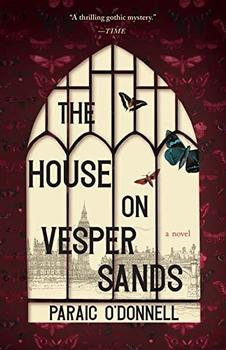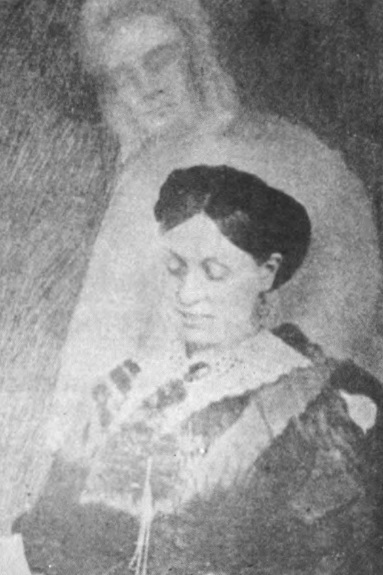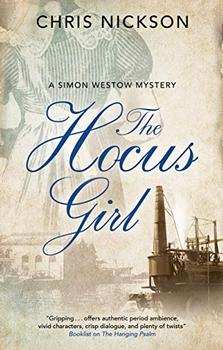Summary | Excerpt | Reading Guide | Reviews | Beyond the book | Read-Alikes | Genres & Themes | Author Bio

With all the wit of a Jane Austen novel, and a case as beguiling as any in Sherlock Holmes' casebook, Paraic O'Donnell introduces a detective duo for the ages, and slowly unlocks the secrets of a startling Victorian mystery.
London, 1893: high up in a house on a dark, snowy night, a lone seamstress stands by a window. So begins the swirling, serpentine world of Paraic O'Donnell's Victorian-inspired mystery, the story of a city cloaked in shadow, but burning with questions: why does the seamstress choose to jump out of that window? Why is there a cryptic message sewn into her skin? And how is she connected to a rash of missing girls, all of whom seem to have disappeared under similar circumstances?
On the case is Gideon Bliss, a young Cambridge dropout who is in love with one of the missing girls, and his partner Inspector Cutter, a detective as sharp and committed to his work as he is wryly hilarious. There's also Octavia Hillingdon, a young reporter determined to tell stories that feel important despite her employer's preference that she write a women's society column. By turns clever, surprising, and impossible to put down, The House on Vesper Sands peels back the mystery layer by layer, offering in the strange undertow of late 19th century London a startling glimpse at the secrets we all hold inside us.
The dynamic between Gideon and Cutter is this book's shining jewel: their dialogue is witty and droll — Cutter being a man of few words and Gideon being a man of far too many, a characterization in line with his academic background. The older, bitter, hardened Cutter proves a worthwhile foil to the youthful, romantic Gideon, and the pair's evolving dynamic provides the novel with its emotional center. The author also successfully paints a portrait of the dark side of Victorian London that is destined to entertain anyone who enjoys neo-Victorian, London-set novels such as Michel Faber's The Crimson Petal and the White or Laura Carlin's The Wicked Cometh...continued
Full Review
(547 words)
This review is available to non-members for a limited time. For full access,
become a member today.
(Reviewed by Rachel Hullett).
 Though the movement of Spiritualism — the belief that the spirits of the dead are able to communicate with the living — was born in New York in 1848 with the Fox sisters, it quickly took hold of the Victorian imagination when it arrived in England in the mid-19th century. Maria Hayden, a famous American medium, arrived in the U.K. in the autumn of 1852. In the British press, Hayden was initially mocked and dismissed, but by the mid-1850s she was being visited by a number of influential clients who began to take her and her beliefs seriously. The press began covering the topic more favorably, and newspapers devoted explicitly to Spiritualism sprung up in London, including the British Spiritualist Telegraph and the Spiritual Times...
Though the movement of Spiritualism — the belief that the spirits of the dead are able to communicate with the living — was born in New York in 1848 with the Fox sisters, it quickly took hold of the Victorian imagination when it arrived in England in the mid-19th century. Maria Hayden, a famous American medium, arrived in the U.K. in the autumn of 1852. In the British press, Hayden was initially mocked and dismissed, but by the mid-1850s she was being visited by a number of influential clients who began to take her and her beliefs seriously. The press began covering the topic more favorably, and newspapers devoted explicitly to Spiritualism sprung up in London, including the British Spiritualist Telegraph and the Spiritual Times...
This "beyond the book" feature is available to non-members for a limited time. Join today for full access.

If you liked The House on Vesper Sands, try these:

by John Shen Yen Nee, S.J. Rozan
Published 2025
Judge Dee and Lao She must use all their powers of deduction—and kung fu skills—to take down a sinister conspiracy between Imperial Russia, Japan, and China in a rollicking new mystery set in 1920s London.
The follow-up to The Murder of Mr. Ma, this historical adventure-mystery is perfect for fans of Laurie R. King and the Guy ...

by Chris Nickson
Published 2020
Thief-taker Simon Westow must save one of his closest friends from a grim fate at the hands of the government in this compelling historical mystery.
Great political questions stir the deepest nature of one-half the nation, but they pass far above and over the ...
Click Here to find out who said this, as well as discovering other famous literary quotes!